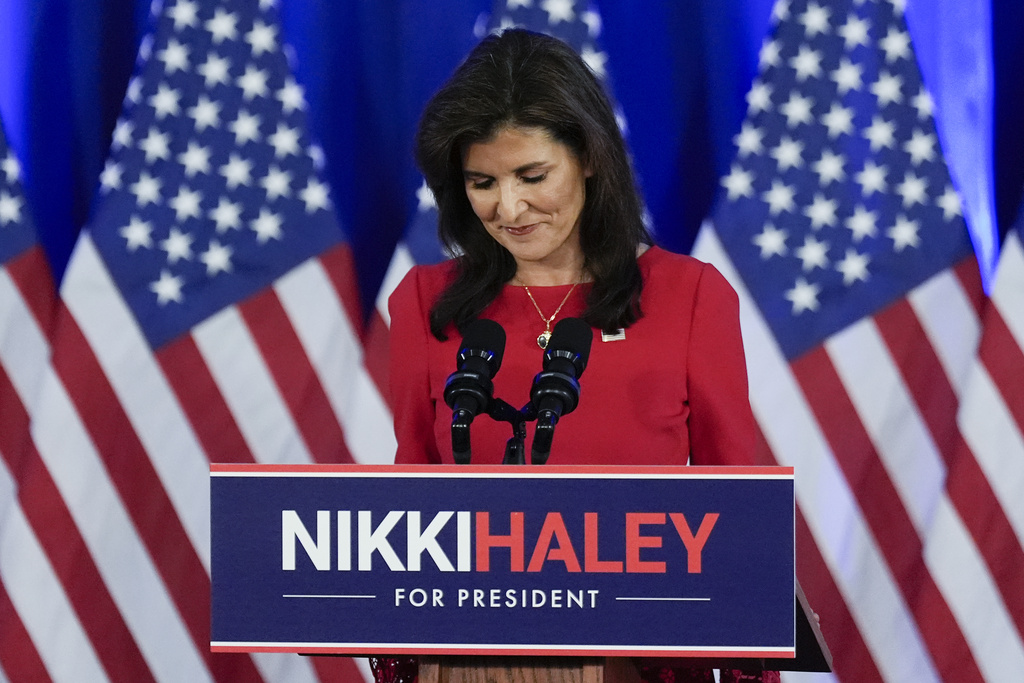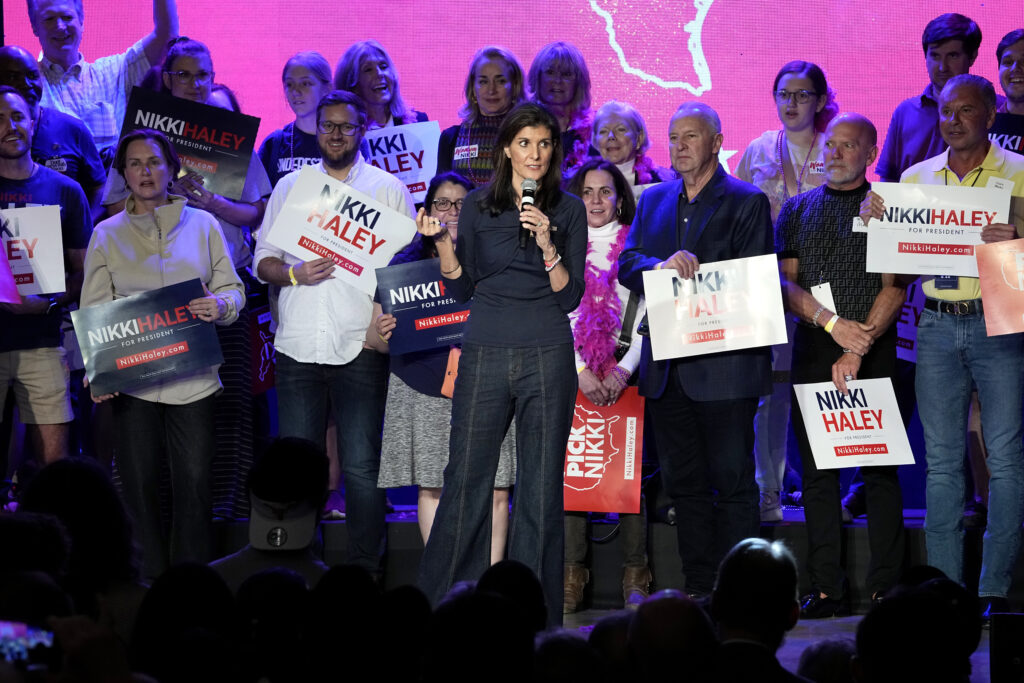Former U.S. Ambassador to the United Nations Nikki Haley ended her 2024 Republican presidential campaign on Wednesday, one day after an abysmal performance during Super Tuesday, when she only won one primary.
But she stopped short of a full-throttle endorsement of her onetime boss former President Donald Trump.
Haley, 52, announced her decision to abandon her aspirations, at least for this election cycle, during a brief Wednesday morning speech in Charleston, South Carolina.
“I am filled with gratitude for the outpouring of support we’ve received from all across our great country. But the time has now come to suspend my campaign,” Haley said ending her 2024 bid on Wednesday.
ELECTION 2024: FOLLOW LATEST COVERAGE
While Haley congratulated Trump, who is now the unofficial presumptive Republican nominee, she did not give an endorsement.
“It is now up to Donald Trump to earn the votes of those in our party and beyond it who did not support him, and I hope he does that,” Haley continued. “At its best, politics is about bringing people into your cause, not turning them away. And our conservative cause badly needs more people. This is now his time for choosing.”

In her long-shot primary battle against Trump, Haley managed to make history as the first Republican woman to win two GOP presidential primaries. She won the Washington, D.C., GOP primary on Sunday and narrowly defeated Trump in Vermont’s GOP primary on Super Tuesday.
Haley won 89 delegates in comparison to Trump’s 995 delegates by the time she suspended her campaign.
The former ambassador’s presidential campaign was once considered an unlikely bid but ended as what she described as the GOP’s “last, best hope” to move past Trump.
Haley, a two-term South Carolina governor, declared her candidacy in person more than a year ago during a Charleston rally after sharing a Valentine’s Day video. There, she indirectly criticized Trump and directly scrutinized President Joe Biden and Vice President Kamala Harris, in part by contending the country needs a new generation of leadership and advocating for term limits, in addition to mandatory competency tests for public officials aged 75 years and older.
Her slow-burn campaign was underpinned by retail politics, spending last spring and summer gripping and grinning in Iowa, New Hampshire, and South Carolina, as well as differentiating herself on abortion policy. But her bid caught fire last summer after the first Republican debate in Milwaukee, during which she leveraged her experience from her voter town halls and evident preparation to demonstrate a command of policy, particularly foreign policy, and deliver memorable one-liners, mostly aimed at biotechnology entrepreneur Vivek Ramaswamy.

With similarly strong debate performances in California and Miami, her polling and fundraising improved as she and Gov. Ron DeSantis (R-FL), who had been perceived by Trump as his greatest Republican threat, turned on each other rather than the former president.
But with Haley’s ascendence, Trump set his sights on her, especially in New Hampshire, where she had Gov. Chris Sununu‘s (R-NH) endorsement and appeared to appeal to the Granite State’s more centrist Republican electorate and undeclared independents with help from more liberal donors. At the same time, Haley seemed to buckle under the combined weight of Trump’s and DeSantis’s attacks, making political mistakes by not mentioning slavery when she was asked what caused the Civil War and putting off some Iowa caucusgoers by quipping New Hampshire voters would have to “correct” their decision. Her last debate in Des Moines was her weakest.
Before New Hampshire, Trump underscored Haley’s immigration, entitlement program, and tax policy positions, amplified by millions of dollars worth of advertising, while trying to undercut her by calling her “birdbrain” and “other” her through her Indian heritage. Simultaneously, Haley increasingly focused on Trump’s mental acuity after he confused her with former House Speaker Nancy Pelosi (D-CA) and following special counsel Robert Hur‘s report into Biden’s own age and memory, emphasizing her message on more mainstream platforms, such as Saturday Night Live and The Breakfast Club.
CLICK HERE TO READ MORE FROM THE WASHINGTON EXAMINER
After New Hampshire, Trump became less magnanimous as he and his allies, including Republican National Committee Chairwoman Ronna McDaniel, mounted pressure on her to drop out of the race.
Other than balancing her criticism of Trump with overtures to his supporter base, Haley, too, had to be mindful of being the first major Republican minority woman to seek the GOP nomination, both downplaying and playing up her womanhood and Indian ancestry to a party that opposes identity politics.
